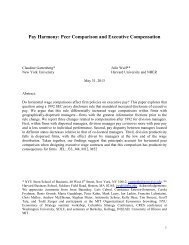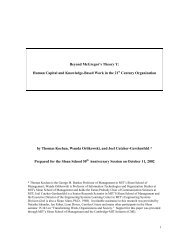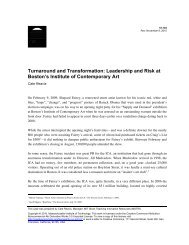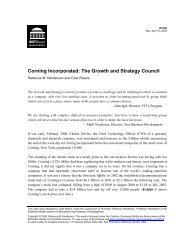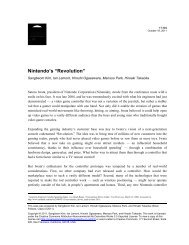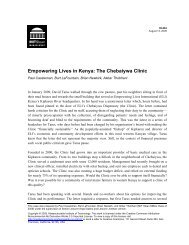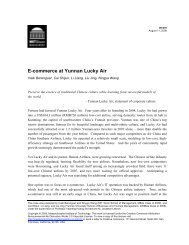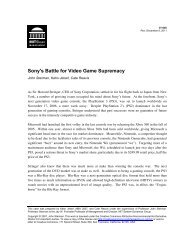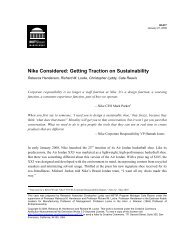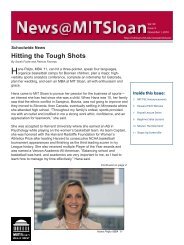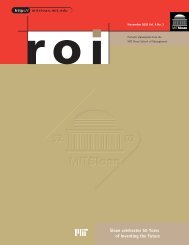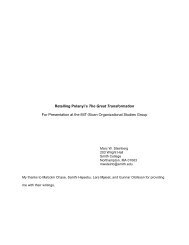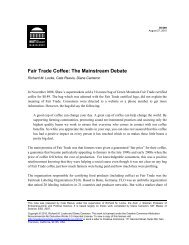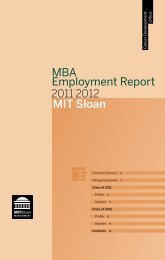Understanding earnings quality - MIT Sloan School of Management
Understanding earnings quality - MIT Sloan School of Management
Understanding earnings quality - MIT Sloan School of Management
Create successful ePaper yourself
Turn your PDF publications into a flip-book with our unique Google optimized e-Paper software.
with “shareholder” corporate governance model) countries. Ball, Kothari, and Robin (2000) find<br />
that <strong>earnings</strong> are less timely in recognizing economic losses in code law countries than in common<br />
law countries, consistent with their prediction that institutions and practices in code law countries<br />
have developed over time such that the demand for decision-useful information is lower. 39 Ball,<br />
Robin, and Wu (2003) examine a sample <strong>of</strong> firms in East Asian countries. They assert that the<br />
accounting standards in these countries are <strong>of</strong> high <strong>quality</strong> (i.e., as they are more similar to U.K. or<br />
U.S. GAAP or IAS than they are to standards in code law countries), but that these countries have<br />
institutions with incentive structures more similar to those that evolve under the code law. They<br />
show that <strong>earnings</strong> <strong>quality</strong> (measured by timely loss recognition) is lower in these countries and thus<br />
conclude that the institutional and governance environment <strong>of</strong> code-law countries diminishes<br />
managers’ and auditors’ incentives to provide high <strong>quality</strong> accounting information. Guenther and<br />
Young (2000) similarly suggest that <strong>earnings</strong> <strong>quality</strong> is demand driven and institutional factors such<br />
as legal system and tax conformity affect <strong>earnings</strong> <strong>quality</strong>. They operationalize <strong>earnings</strong> <strong>quality</strong> as<br />
the association between cross-sectional average return on assets in a country and its real economic<br />
growth measured by the percentage change in a country's real GDP. They document that this<br />
association is high in the U.K., U.S. and Japan, and low in France and Germany.<br />
4.2 Earnings management as an element <strong>of</strong> <strong>earnings</strong> <strong>quality</strong><br />
A common hypothesis in cross-country studies is that variation in investor protection affects<br />
the aggregate level <strong>of</strong> observed <strong>earnings</strong> management in a country. Leuz, Nanda, and Wysocki<br />
(2003), who measure <strong>earnings</strong> management by accruals-based measures, smoothness, and small loss<br />
avoidance, find less <strong>earnings</strong> management for countries with developed stock markets, dispersed<br />
39 Ball et al. (2000) also find that U.K. <strong>earnings</strong> are less timely than U.S. <strong>earnings</strong> in incorporating economic losses.<br />
Pope and Walker (1999), however, suggest that this result is sensitive to the consideration <strong>of</strong> extraordinary items. They<br />
find that <strong>earnings</strong> after extraordinary items in the U.K. are more timely than U.S. <strong>earnings</strong>.<br />
76



